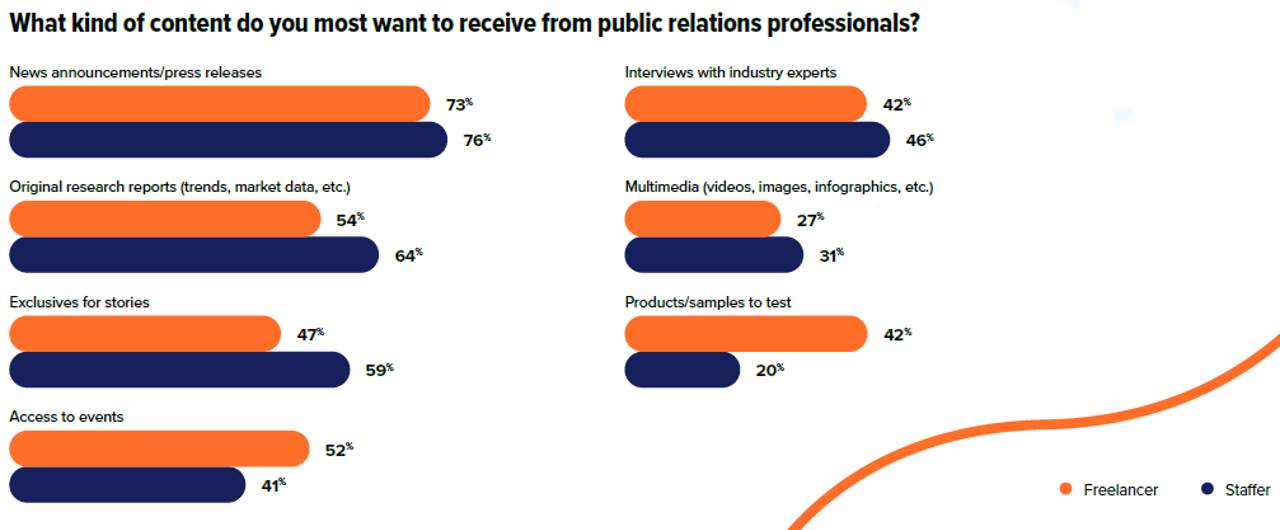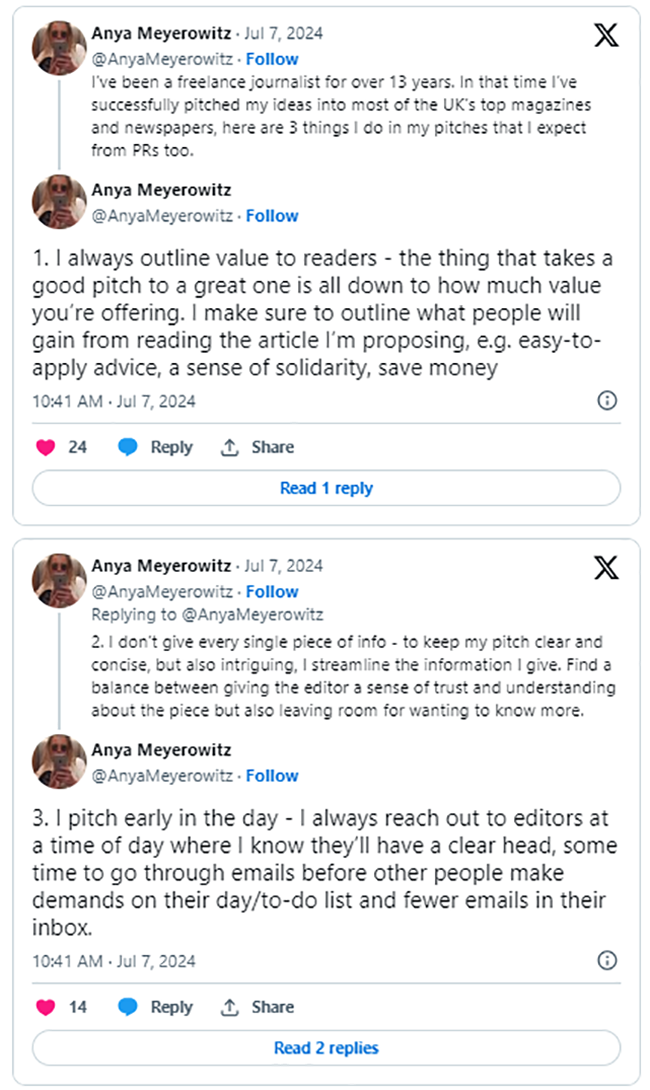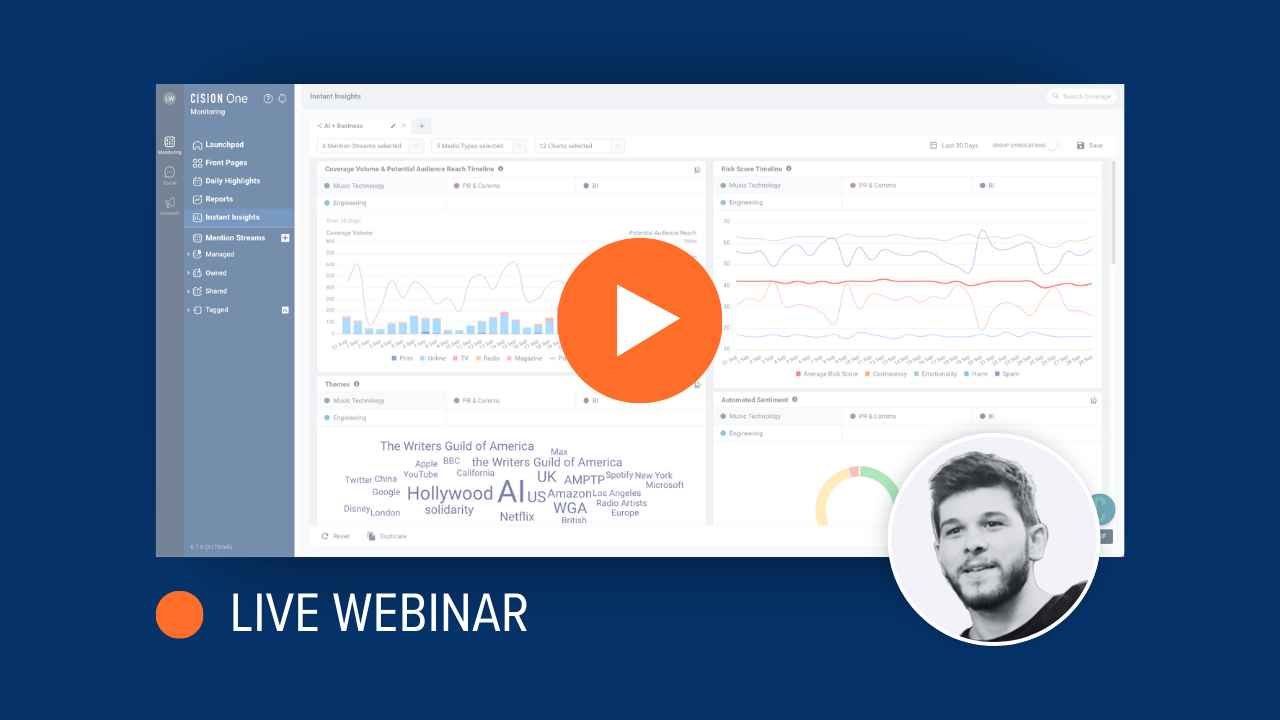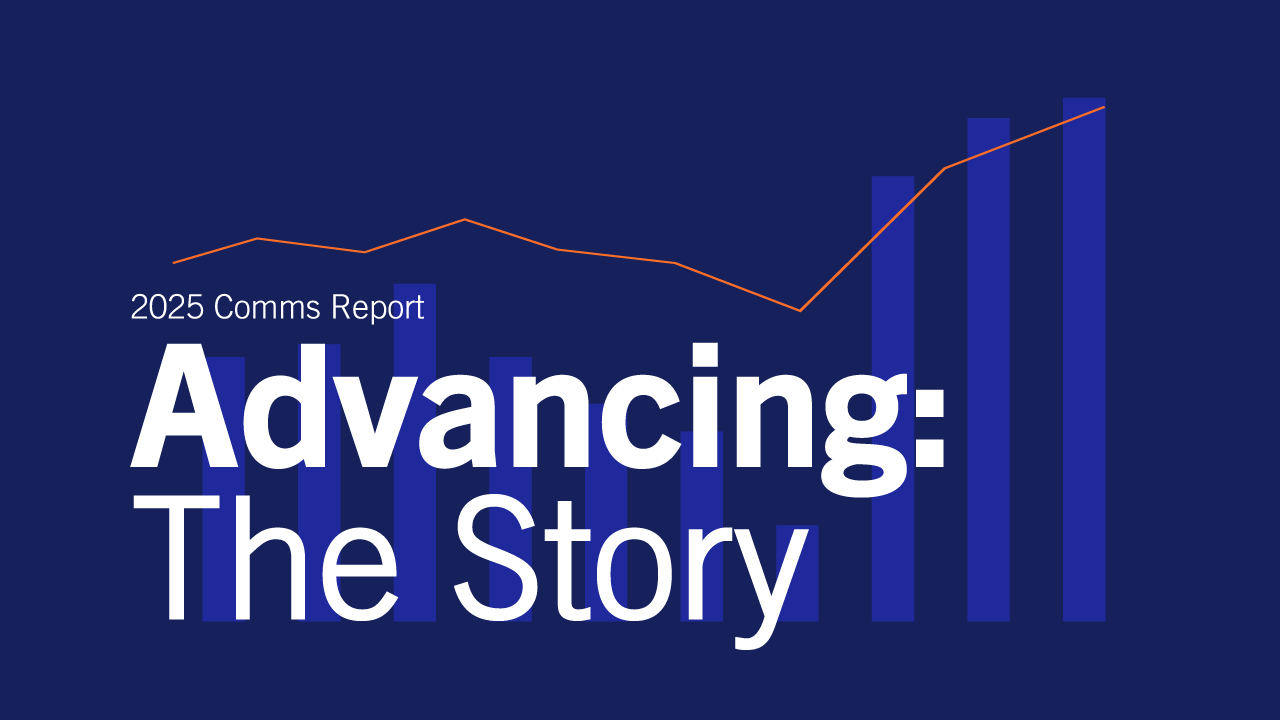No two journalists are the same, so for public relations and communications professionals looking to partner with a reporter, it’s increasingly important to understand them on an individual level. That means getting to know what they cover, the specific challenges they face, and if they’re writing for multiple publications. The latter is becoming ever more likely, with more than 1 in 5 (22%) identifying as a freelance or independent journalist in Cision’s 2024 State of the Media Report.
With significant news and media layoffs in recent years, the number of freelance and independent journalists is only going to rise. According to FastCompany, more than 21,000 media jobs were lost in 2023 – the highest (excluding 2020) since 2009, when more than 22,300 jobs were cut, and 2008, when 28,800 jobs were cut.
As industry jobs vanish, journalists are not only turning to freelancing, but also independent platforms like Medium, Substack, and podcasts to connect with audiences and establish a personal brand. They’re in the creator economy and competing with traditional media and influencers for attention – but what does this mean for PR and comms teams seeking to work with them? Read on to find out more on what makes freelancers tick and how to approach building relationships with them.
The Benefits of Working with Freelance Journalists
One major benefit of working with freelance journalists is the fact that their stories can span across multiple publications, meaning there’s the potential to get more earned media coverage. A staff journalist invited to an in-person event will cover it solely for their accredited publication, but a freelancer could spin the material they gather into multiple stories for several outlets. That represents more bang for your buck (and for the freelance writer.)
Freelance journalists also rely on commissions from various media outlets for their livelihoods. This makes them highly motivated to get their stories published, something that works to a PR’s advantage. For instance, a group of staff journalists invited to a press conference might not find anything newsworthy for their publications. A freelancer may look deeper for a unique angle and use existing relationships with commissioning editors to get the story out there.
While staff journalists typically cover a defined beat, their freelance counterparts may have a more diverse portfolio of subjects and publications they write for. This gives PR professionals more flexibility when pitching, though some freelancers will still specialize in covering certain sectors.
It’s also worth remembering that PR professionals and journalists both share common goals; they’re all about communicating with audiences and bringing them compelling stories that have value. As such, many freelance journalists moonlight for PR firms to create content like blogs, press releases, or social media posts. More cost-effective than hiring someone full-time, PR pros can work directly with freelancers to make use of their subject matter expertise and media know-how.
5 Tips for Working with Freelance Journalists
- Know their expertise and target outlets: Look at the freelancer's prior work and areas of expertise. Find out the publications they regularly contribute to – or if they use an independent platform like Substack – and tailor your pitches accordingly.
- Respect their time: Freelancers often work on multiple projects for different publications and clients. Be concise in your communications and flexible with deadlines when possible.
- Offer unique angles: Freelancers usually look to go beyond a standard news story and pitch fresh ideas to editors. Provide them with exclusive information or unique perspectives that will help their pitches stand out.
- Provide resources: Make the journalist’s job easier by offering a complete press kit, including high-resolution images, multimedia assets, and access to relevant events or spokespeople.
- Build long-term relationships: Cultivate ongoing relationships with freelancers over time, not just one-and-done interactions. They may be able to cover your stories across multiple outlets and can help if they end up moving to a staff position.
What Freelance Journalists Want From PR
For the 2024 State of the Media Report, we separated out responses from staff journalists and freelancers to get a sense of where their challenges and priorities lie.
When asked what kind of content they most wanted to receive from public relations professionals, freelancers and independent journalists named press releases and news announcements as their top choice (the same as staff reporters.)

What does the above chart tell PR pros about how they should approach working with freelance journalists?
PR teams who want earned media coverage for their products or events may have more luck reaching out to independent journalists. They expressed more interest in access to events (52% versus 41% for staff reporters) and products or samples to test (42% versus just 20% for staff journalists). Full-time staff showed much more interest in original research and exclusives for stories.
Freelancers view the overall health of the industry differently, too. When asked what they believed were the biggest challenges to journalism in the last year, they diverged from their staff counterparts on several issues...
- Thirty-four percent of freelancers cited the emergence of artificial intelligence (AI) versus 23% of staffers
- Thirty-two percent said competing with social media influencers and content creators for audience attention against 26% from staffers
- Just 22% of freelancers worried about lack of staffing or resources versus 43% of staffers
- Thirty-two percent were concerned about changing audience behaviors around media consumption versus 46% of staffers
This shows how important it is for PR to know the dynamics at play when dealing with freelance journalists versus journalists tied to a larger organization. Their challenges, concerns, and needs will differ, so getting to know them on a personal level is crucial to building a relationship with them.
5 Tips for Pitching Freelance Journalists
Whatever you’re pitching, here are a few general tips that will win you favor with the freelance journalists you’re reaching out to:
- Be relevant and personal: When asked to describe the perfect PR pitch, the majority of freelance journalists had one word to say: “relevant.” Moreover, 63% of freelancers who responded to the 2024 State of the Media survey said PR pros who understood their target audience and what they found relevant made their jobs easier.
- Perfect your outreach: How do freelancers prefer to receive their pitches? Ninety percent said email, making it by far the best way to pitch. Ensure your emails are clear, to-the-point, and error free. Platforms like CisionOne Outreach can help with building freelancer email media lists and email pitches.
- Be smart with subject lines: The subject line of your pitch is often the first chance to make an impression. Use “pitch” or “story idea” to set context, but avoid being too salesy – nearly half of freelance journalists say pitches that sound like marketing brochures will put a PR pro on their “don’t call” list.
- Include press release and asset links: Freelancers, like staffers, favor press releases for generating content ideas. Make sure your pitch has a link to any accompanying press release, plus any multimedia that helps bring the story to life.
- Don’t overdo follow-ups: Sixty-five percent of freelance reporters say PR pros should follow up just once after sending a pitch. Respect their inboxes, as nearly half (49%) say they receive more than 50 pitches a week.
A bonus tip? PR pros should look out for #journorequest or #journorequests on X/Twitter or LinkedIn, where freelance journalists will often post requests for subject matter experts or help crafting a story.
Social media is also a place where freelance reporters share their own insights on pitching and the PR-journalist relationship. Take Anya Meyerowitz, a freelance editor and PR consultant, who posted the below advice...

Best Practices for Building Relationships with Freelancers
The best place to start when it comes to building relationships with freelance journalists is to research their recent work and areas of expertise. Check out their social media handles and engage with them meaningfully, both through a personal and any brand or agency account, to establish a connection.
By offering exclusive or unique story angles, or access to events, products, and experts that align with their interests or publications they work for, you’ll quickly become a reliable resource. They’ll often be under strict deadlines, so establish this early on in your communications with them and be ready to give timely responses to their queries.
It’s also worth maintaining regular communication, even if you don’t have a specific pitch to share. A coffee or quick Zoom chat to share what you’re working on, or relevant industry insights, demonstrates a human touch and keeps you on their radar.
Finally, always give credit where it's due and express appreciation for their work. Reshare any stories you collaborate on via social media to acknowledge their work. These efforts will help foster mutually beneficial, long-lasting relationships with freelance journalists.
To learn more about how CisionOne Outreach can help you connect with journalists and craft your pitches, get in touch to speak with an expert today.
Most Recent Posts
Cision Resources
-
E-books and Guides
Comprehensive how-to guides on strategy and tactics
-
Case Studies
What are other brands doing – and how can we learn from them?
About Simon Reynolds
Simon is the Content Marketing Manager at Cision UK. He worked as a journalist for more than a decade, writing on staff and freelance for Hearst, Dennis, Future and Autovia titles before joining Cision in 2022.
Learn More. Do More. demo new
PR Tips, Case Studies, and Product Updates

[On-Demand Webinar] The Next Generation of Media Intelligence: From Gorkana to CisionOne
Explore CisionOne, a revolutionary media intelligence platform, and the evolution of Gorkana. Learn key features and strategies from Luke Williams, CisionOne Product Marketing Manager. Elevate your media outreach to new heights!


